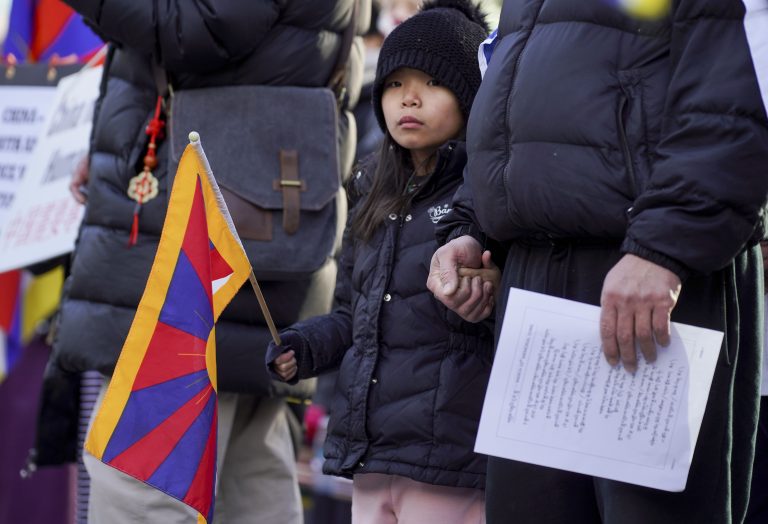Christmas is just around the corner and “Merry Christmas” is the most natural or hearty greeting in Canada. However, in Canada’s multicultural communities, you may wonder if “Merry Christmas” is a safe way to greet those who grew up in non-Christian homes without offending them. Some people would rather use “Happy Holiday” to make sure it is “politically correct”.
Okay, no worries, you can breathe a sigh of relief as a recent poll by Leger finds that it’s just fine to say “Merry Christmas” and actually most Canadians prefer it to “Happy Holidays.” The survey also suggests that warm embrace of a Christmas greeting does not signal enduring religious convictions to match either.
The most important takeaways from this national public opinion survey are the following two findings:
- Even 92 percent of respondents who grew up in a non-Christian household said they are not offended by someone sending Christmas greetings.
- A full 70 percent of respondents nationwide said they are more likely to greet someone this time of year by saying “Merry Christmas,” compared to 23 percent who said they will likely go with “Happy Holidays.”
“Institutions, governments, businesses, sometimes they make a lot of effort trying to come up with, I guess we could call it a politically correct approach, to passing on greetings. It seems a strong majority tend to just use Merry Christmas,” said Andrew Enns, an executive vice-president at Leger.
“Maybe we are worrying about something that the people we think we might be offending don’t feel very offended.”
Age, gender and region differences
Success
You are now signed up for our newsletter
Success
Check your email to complete sign up
The survey was conducted by Postmedia-Leger between Dec. 9 and Dec. 11 to examine the public attitudes on how religion relates to the holiday season. Results were weighted according to age, gender, and region to ensure a representative sample of the population.
Of the approximately 1,500 respondents online, about 40 percent said religion, including special religious days, is important in their household today, with 17 percent holding it as very important and the remaining 24 percent saying it was somewhat important. More women than men said religion was important (44 per cent versus 39 per cent).
Regarding the religious background in which a person was raised, 55 percent of the respondents said they grew up culturally or religiously Christian, compared with 44 percent who said they grew up in a non-Christian household, including other religions and the non-religious.

Age made an enormous difference in identifying a Christian heritage. Thirty-nine percent of responses from those aged 18 to 34 — the youngest group — said they grew up in a Christian household, while 72 percent of those 55 and older — the oldest group — said they were Christian. Forty-eight percent registered in between those age groups.
There are also differences across regions. Respondents in British Columbia had the lowest Christian affinity and those in Quebec had the highest (39 percent versus 65 percent). Atlantic Canada’s provinces, combined, were at 59 percent identifying with Christian roots; Alberta at 58 percent; Manitoba and Saskatchewan, combined, at 57 percent; and Ontario at 54 percent.
Generally speaking, older Canadians, women and people from Eastern Canada were more likely to be identified as having Christian roots. Interesting though, despite Quebec respondents having the highest identified Christian roots, they were also the most likely to say religion is not important in their household today.
Regarding Christmas greetings, 71 percent of respondents who grew up in Christian households said they use “Merry Christmas”, while the remaining 29 percent said they avoid saying it to strangers due to the fear of offending them.
Of the respondents who grew up in a culturally or religiously non-Christian household, only 8 percent said they are offended by a Christmas greeting.
When it comes to celebrating Canadian public holidays based on religion, most Canadians — 58 percent — want to keep the public holiday schedule centered on Christmas, as it’s a Canadian tradition. Another 24 percent said Canada should have additional public holidays for other cultural traditions. Six percent said there should be no religion-based holidays, and the remaining 12 per cent didn’t give their answers to the survey question.
Again, there are big differences of opinions in this regard among different age groups.
Thirty-eight per cent of the youngest group and 69 percent of the oldest group wanted to keep the Christmas season as it is, while 40 percent of the former and 15 percent of the latter were in favour of change such as expanding the public holiday schedule.
“The young generation tends to place less importance on religious holidays except in one important aspect — when it’s attached to a day off. Then they tend to think we might want a few more of these sorts of holidays than a bit less,” Enns said.













